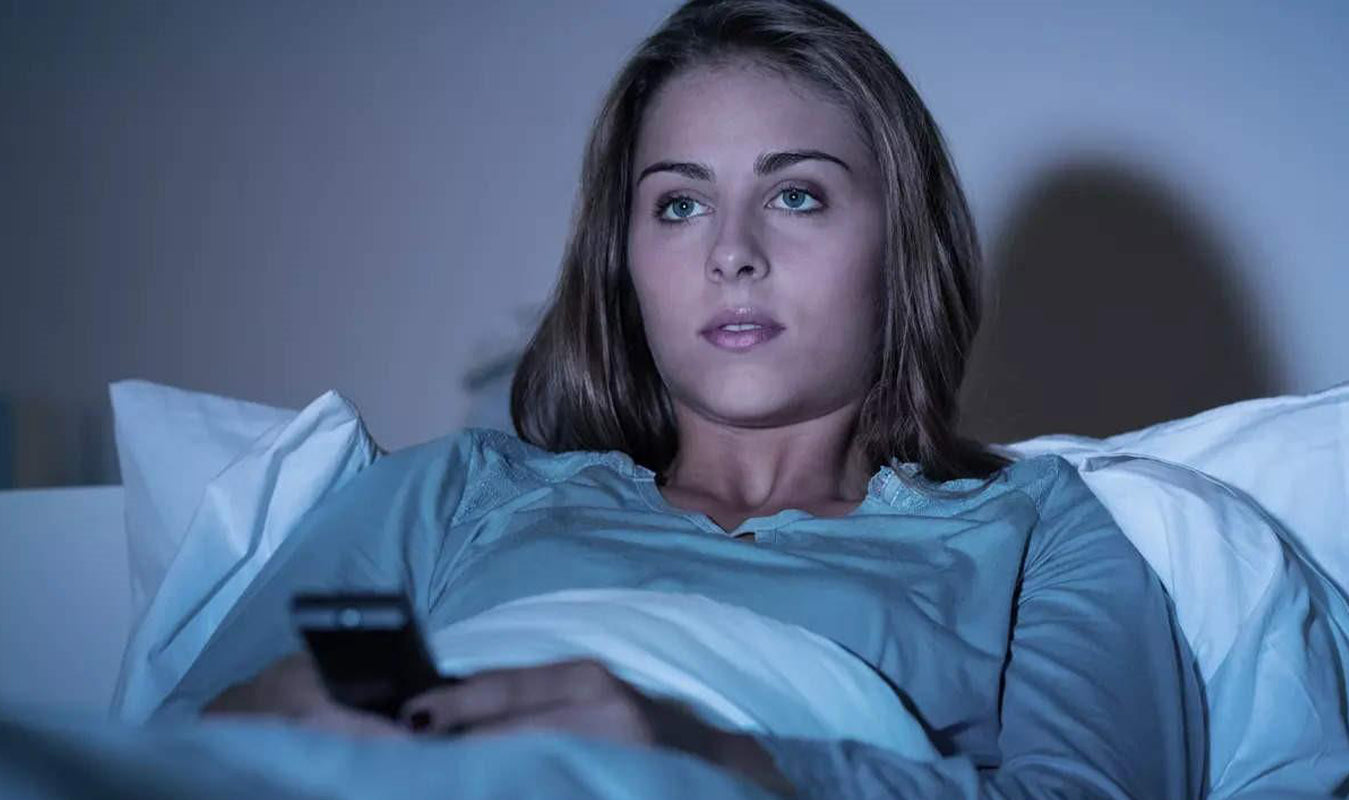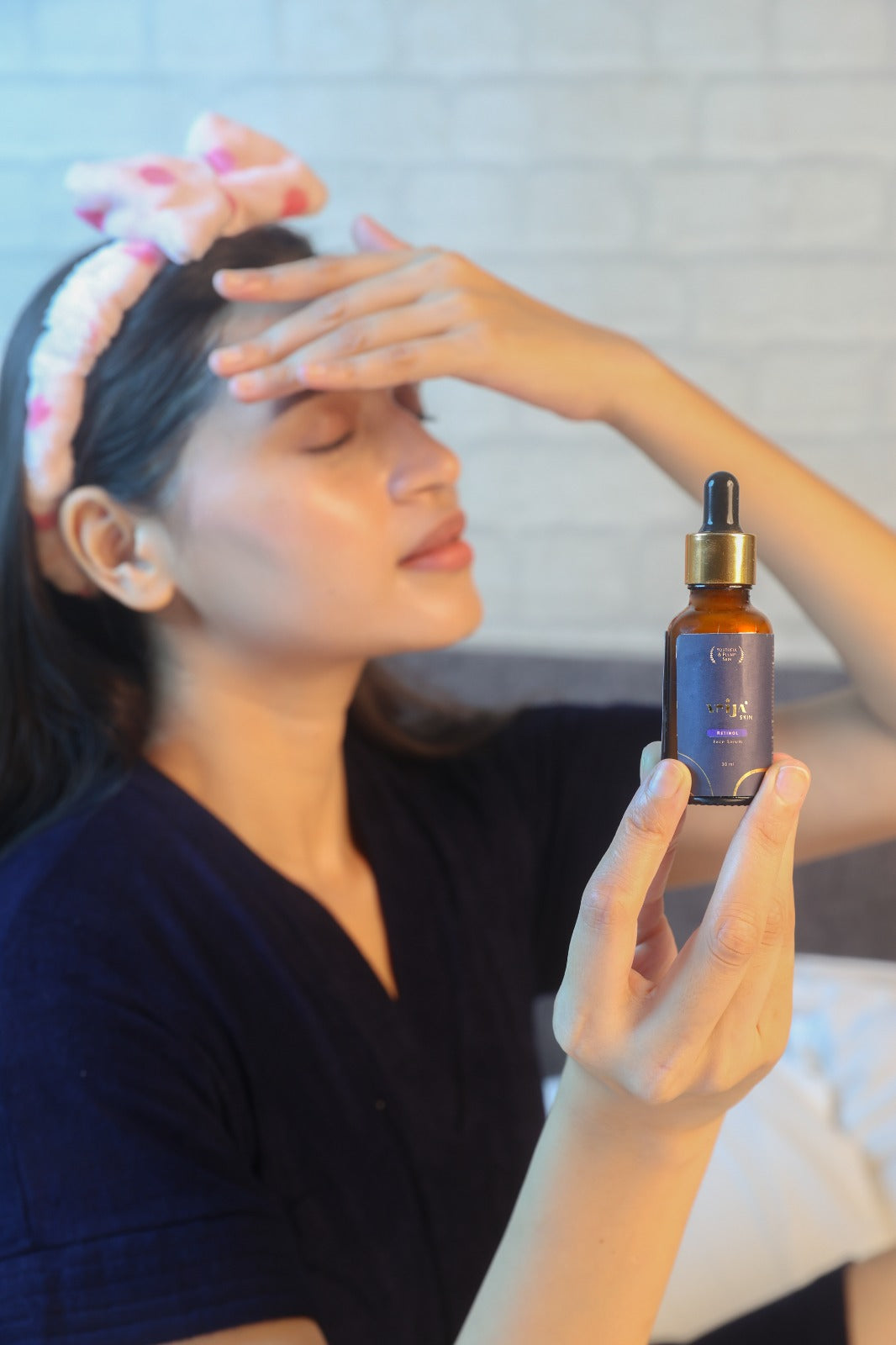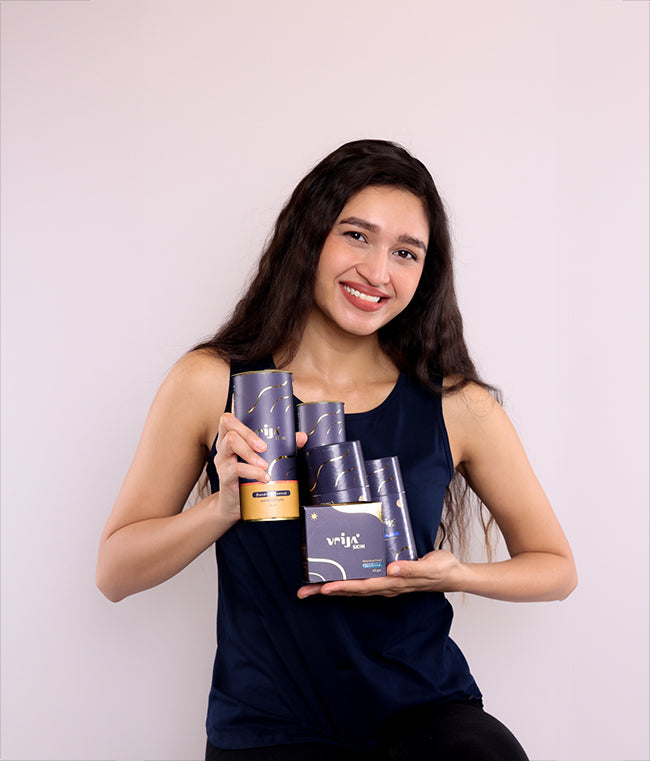
Is binge-watching your favourite series ruining your skin?
Thanks to OTT platforms like Netflix, watching new and compelling series is just a click away! From our love-hate relationship with Joe Goldberg’s obsessive vibes in the 3rd season of YOU to Squid Game, and Stranger Things, you’ve watched it all. When it comes to watching binge-worthy series, there’s no such thing as portion control. But seriously, why is binge-watching so addictive?
Here’s why binge-watching is so addictive
If you’ve ever heard of something known as a ‘habit loop’, you’ll know that when we crave for a thing and we obtain it, there are two distinct spikes of a chemical known as “Dopamine” in the body. You crave to watch just one episode of Lucifer after a taxing day at work, and this anticipation ushers to the first spike. You watch that episode, and you’re satisfied. Here comes the second spike. The ‘dopamine high’ after you satisfy your craving tells your brain, this feels good, let’s watch some more. As long as you continue watching the series, your brain produces more dopamine, leaving you stuck in a vicious cycle.
But sadly, we have some not so great news for those of you patiently waiting to binge-watch the second season of Emily in Paris (but seriously, what is this ignorant young lady up to?)- Your habit might be wrecking your skin!
Blue light vs the skin: it’s a tough battle
The colours emitted from fluorescent bulbs, computers and mobile screens are detected with the help of special cells in our eyes, known as the ‘cone cells’. The cone cells after detecting the colours transmit impulses to the brain, which processes them according to three colours- blue, red, and green. Accordingly, screens are made to emit blue light, which is the low wavelength (472 nm) and high energy visible light. Without blue light, colours are not formed properly, hampering the display quality of the screen. This is why blue light cannot be completely omitted (at the manufacturer’s level).
As we now know, blue light is that constituent of visible light that has a low wavelength, but high energy. It is also known as High Energy Visible light (HEV). Similar to UVA and UVB (which fall under the category of invisible light), HEV can penetrate deep into the dermis, and cause visible detrimental changes to our skin.
Although it is not completely known how HEV damages your skin, it is hypothesized that it works by increasing free radical production and increasing specific enzymes known as matrix metalloproteinases. Both of these products are wholly talented at degrading collagen and elastin, the two main proteins in your skin that keep it plump and youthful. The more collagen you lose, the more your skin develops wrinkles and sagging. In addition to this, people with a darker skin tone are more prone to developing hyperpigmentation when exposed to HEV.
Ever heard of the “Netflix Face”?
Dr Justine Hextall, the London-based dermatologist warns against excess screen time and its contribution towards premature ageing and hyperpigmentation. ‘Netflix Face’ is what she calls the result of premature ageing and hyperpigmentation, a result of excessive binge-watching. Further, when you decide to take your smart device outdoors, you’re unknowingly increasing the risk of damaging your skin manifold. In addition to the UVA and UVB the sun is already bestowing upon you, additional UV rays are absorbed by your skin when they’re reflected off your screen!
The effects of HEV on your skin are not immediate but cumulative. Some years down the lane, you might regret not spending some time off the couch!
How can you prevent the damage caused by HEV?
Even though you can not avoid the sources of blue light around you, you surely can prevent the extent of damage that it causes to your skin by taking some simple measures. This includes wearing a broad-spectrum sunscreen with a minimum SPF of 30. You can also include antioxidants (like Vitamin C and E) in your routine to prevent oxidative damage. Along with this, you should limit screen time and enable the night mode on your devices. Try to find a sweet spot between leisure and protection, and you’ll be good to go.




